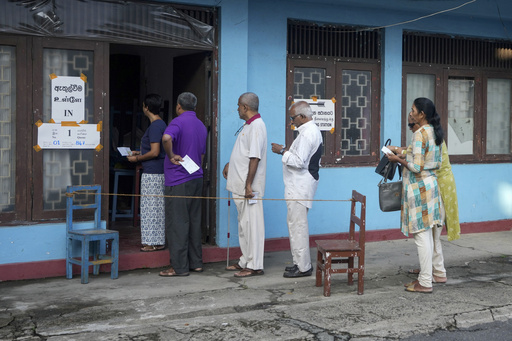
COLOMBO, Sri Lanka — In early updates from the parliamentary elections, Anura Kumara Dissanayake’s National People’s Power Party has taken a significant lead, suggesting strong public support for his economic recovery agenda. The party has claimed 15 out of 22 electoral districts for which results have been announced by the Elections Commission.
Dissanayake, who assumed the presidency on September 21, marked a notable shift away from the traditional political parties that have ruled Sri Lanka since its independence in 1948. Although he secured only 42% of the popular vote, raising doubts about his party’s future in the elections held on Thursday, the recent results indicate a marked increase in backing for his administration within a short span of his presidency.
A surprising and significant development in this electoral round is the party’s victory in the Jaffna district, traditionally a stronghold for ethnic Tamils in the northern region, along with an impressive showing in numerous other areas known for minority populations. This win represents a significant setback for the historically dominant ethnic Tamil parties that have played a central role in the region’s politics since the country gained independence.
In the Sri Lankan parliamentary system, a total of 225 seats were available, of which 196 were being contested under a proportional representation framework. This system allows for seat distribution among parties based on the share of votes obtained in each district. The remaining 29 seats, known as national list seats, are assigned to parties and independent candidates in relation to their overall vote share across the nation.
